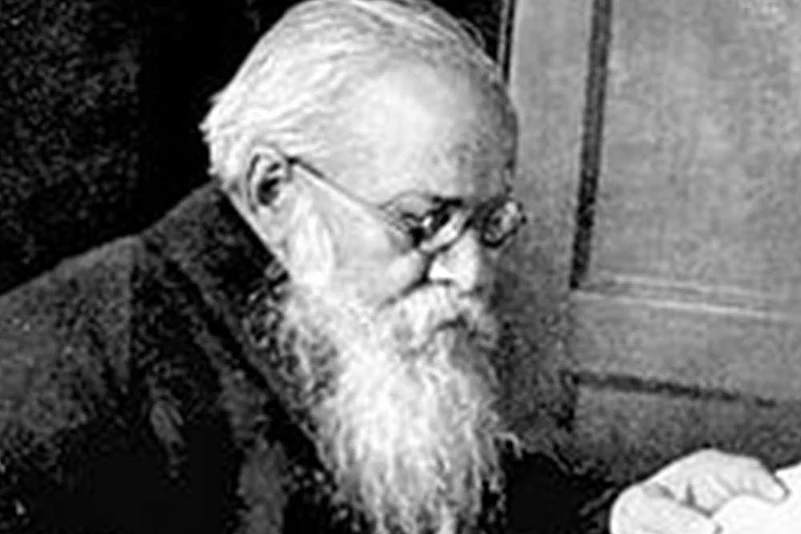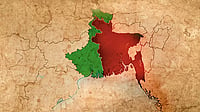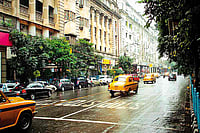As I write this review, India is in the middle of another proxy war, televised hate speech is deified as prime-time journalism and a cynical public is deeply divided and communalised. In such times, an anthology that ennobles the opposite of these ailments is a surprising, but welcome, infringement. It is difficult to imagine a time when politicians were also statesmen, read widely and debated vigorously, when they agreed to disagree with civility and yet partook in an idea of an emergent nation that was inclusive and affirmative.
The publishers must be extolled for remembering The Modern Review, a pioneering English journal of the last century and for resuscitating, even if temporarily, the lost art of public debate and dissident intellectualism that the journal pioneered. It is priceless cultural memory, recovered and recollected from dusty, yellowing archives for a forgetful and embattled generation. Deftly edited and pithily introduced, The Modern Review, helmed by the scholarly and cosmopolitan Ramananda Chatterjee (pictured below) and his son and published from Calcutta for over four decades, established a template for engaged public debate on a enthrallingly wide variety of issues that it considered foundational to its mandate as a vehicle for dissemination of public knowledge.
A typical selection, the editors write, from a 1927 issue, would “include articles on Chinese nationalism, progressive Islam, the war on opium, the crisis in South Rhodesia, ancient painting in Ceylon, recent Hindi literature, Upton Sinclair, the history of the Prarthana Samaj, Afsidal temples and Indian womanhood”. In other words, The Modern Review nurtured the argumentative Indian and helped (along with other Indian-language journals) in the construction of a robust political, cultural and social climate that could, on Independence, sustain a nation of promise and possibility. At least on paper.
The most meaningful debates on the pages of The Modern Review, however, thanks to the time it took shape and the towering contributors, were about self-rule, democracy and the need to go beyond nationalist cliches. Given the efficacy of the debates and the stark contrast that they provide to the vacuity and illiteracy of the present political dispensation, the editors have rightly privileged them from among the vast archives that hold the total collections of the Review. In what is a definitive essay (Towards Home Rule), Chatterjee argues passionately that the idea that Indians are unfit to rule themselves militates against logic and history and are signs of an insolent British administration that was in arrogant self-denial. Others—Gandhi, Sister Nivedita, Lala Lajpat Rai, Nehru, Subhas Bose—substantially add to this idea in other essays. The wars and the famines, the nationalist movements and the missions and policies that were slowly and grudgingly illuminating India’s ways to freedom, were meat for some extraordinary discussion.
Nehru went a few notches further. He contributed an entire essay critiquing himself, while writing as someone else. “The most effective pose,” writes the unknown Chanakya (Nehru himself), “is one in which there seems to be least of posing, and Jawaharlal Nehru has learnt well to act without the paint and powder of the actor. With his seeming carelessness and insouciance, he performs on the public stage with consummate artistry.” The eloquent prose is a giveaway, but this sense of irony so steeped in dissident humour is something worth cherishing.
This anthology also includes samples of letters to the editor, poems and short stories notes and sketches and ruminations on the public role of women and ‘people of caste’. The Modern Review was a favourite journal of Rabindranath Tagore and he is well represented. Tagore’s universalism and elegant modernity had made him anxious about the trappings of a chest-thumping nationalism and in two essays here Tagore makes no bones about his discomfiture regarding Gandhi’s professed anti-modernity. Personally though, the most remarkable inclusion is the now-iconic conversation between Albert Einstein and Tagore called On The Nature of Reality.
In a world devoid of empathy and one which is perpetually in throes of vulgar self-gratification, this volume might well be a reminder of the real nature of engagement with truth back in those days as well as what India could have been.
(The reviewer teaches at Ambedkar University, Delhi)


























